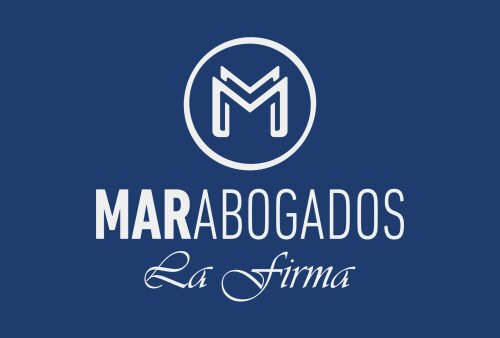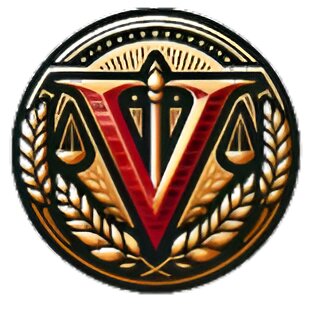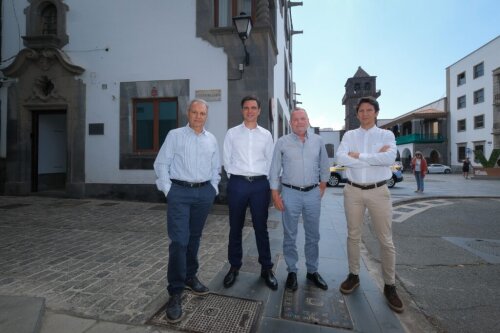Best Whistleblower & Qui Tam Lawyers in Las Palmas de Gran Canaria
Share your needs with us, get contacted by law firms.
Free. Takes 2 min.
List of the best lawyers in Las Palmas de Gran Canaria, Spain
About Whistleblower & Qui Tam Law in Las Palmas de Gran Canaria, Spain
Whistleblower and Qui Tam law in Las Palmas de Gran Canaria, Spain refers to the legal protections and procedures in place for individuals who report illegal or unethical activities such as fraud, corruption, or other wrongdoing within organizations, particularly when public funds are involved. While “Qui Tam” action is rooted mainly in U.S. law, Spain has specific legislation focused on the protection of whistleblowers and the reporting of certain illicit activities. These legal frameworks are designed to both encourage the reporting of misconduct and ensure the protection of individuals who come forward, especially in sensitive cases involving government funds or serious breaches of public trust.
Why You May Need a Lawyer
Individuals considering whistleblowing or reporting fraudulent activity in Las Palmas de Gran Canaria may require a lawyer for several important reasons. Legal counsel can help assess the validity of your complaint, guide you through the relevant Spanish or EU legal procedures, and protect your rights as a whistleblower. A lawyer is particularly important if you fear retaliation such as dismissal, harassment, or blacklisting. Additionally, if your case involves public funds, complex organizational structures, or cross-border elements, legal support is critical to ensure your actions are compliant and your interests are safeguarded throughout the process. Whistleblowing cases can quickly become intricate, especially when multiple jurisdictions or large organizations are involved.
Local Laws Overview
In Las Palmas de Gran Canaria, as part of Spain and the European Union, the legal protections for whistleblowers primarily derive from national anti-corruption and labor laws, as well as the recent implementation of the European Union Whistleblower Directive (EU Directive 2019/1937). This directive mandates companies and public administrations with 50 or more employees to provide internal reporting channels and protect individuals who report breaches of EU or Spanish law.
Spanish Law 2/2023 on the Protection of Persons Who Report Regulatory Infringements and Combating Corruption specifically transposes the EU Directive into national regulations. The law establishes obligations for organizations to set up secure channels for reporting, defines the scope of protected disclosures, prohibits retaliation against whistleblowers, and sets out procedures for investigation and resolution. Las Palmas de Gran Canaria, like all Spanish localities, must adhere to these standards, and both public and private sector organizations are subject to these requirements.
Frequently Asked Questions
What is considered whistleblowing in Las Palmas de Gran Canaria?
Whistleblowing is the reporting of suspected illegal or unethical behavior, especially relating to corruption, fraud, or serious breaches of laws or regulations within an organization, whether public or private.
Are there protections for whistleblowers in Las Palmas de Gran Canaria?
Yes, whistleblowers are protected under Spanish Law 2/2023 and the EU Directive. Protections include confidentiality, the right not to be retaliated against, and, in some cases, support measures if the whistleblower faces adverse consequences.
Can I report anonymously?
Reporting channels must allow for anonymous disclosures, especially for complaints related to serious offenses. However, following up on an anonymous report may be more difficult if additional information is needed.
What types of wrongdoing can I report?
You can report violations of EU or Spanish law, corruption, fraud, harassment, discrimination, financial mismanagement, environmental offenses, and other unlawful practices covered under the law.
Who is obligated to have internal whistleblowing channels?
All public authorities and private organizations with 50 or more employees must have internal reporting mechanisms in place. Small businesses may have different requirements.
What should I do before making a whistleblower report?
Gather all relevant evidence, understand the internal reporting procedures, and strongly consider consulting with a lawyer to understand your rights and risks before proceeding.
Is retaliation against whistleblowers prohibited?
Yes, retaliation such as dismissal, discrimination, or any form of reprisal against someone who makes a protected disclosure is illegal under Spanish law.
What if my employer ignores my report?
You can escalate your complaint to external authorities such as the Spanish Anti-Corruption Authority or relevant government bodies in the Canary Islands if your employer fails to act or if there is a conflict of interest.
Can I face legal consequences for whistleblowing?
If your disclosure is made in good faith and concerns matters covered by law, you are protected from legal repercussions. However, knowingly making false reports can result in disciplinary or legal action.
Do whistleblowers receive any financial rewards in Spain?
Unlike some jurisdictions, Spain does not generally provide financial incentives for whistleblowers. Protection focuses on safeguarding against retaliation rather than offering rewards.
Additional Resources
Several organizations and authorities can provide information or assistance regarding whistleblower and Qui Tam matters in Las Palmas de Gran Canaria:
- Oficina Andaluza Antifraude (Andalusian Anti-Fraud Office) - Collaborates with Canary Islands authorities on anti-corruption matters
- Agencia Estatal de Administración Tributaria (AEAT) - For tax fraud matters
- Comisión Nacional de los Mercados y la Competencia (CNMC) - For competition-related issues
- Ministry of Justice - For legal information and contact with official prosecutors
- Bar Association of Las Palmas de Gran Canaria (Ilustre Colegio de Abogados de Las Palmas) - For lawyer referrals
Next Steps
If you are considering blowing the whistle on misconduct in Las Palmas de Gran Canaria:
- Document all relevant facts and gather supporting evidence where possible
- Contact a qualified lawyer experienced in whistleblower protection to discuss your options and ensure compliance with local and EU laws
- Familiarize yourself with your organization’s internal reporting procedures
- If you fear retaliation or if your organization lacks proper procedures, consider reporting directly to the relevant public authority
- Keep records of all your communications and steps taken in case further legal support is needed
Taking these steps with the guidance of a legal professional can help safeguard your rights and support the effective resolution of your concerns.
Lawzana helps you find the best lawyers and law firms in Las Palmas de Gran Canaria through a curated and pre-screened list of qualified legal professionals. Our platform offers rankings and detailed profiles of attorneys and law firms, allowing you to compare based on practice areas, including Whistleblower & Qui Tam, experience, and client feedback.
Each profile includes a description of the firm's areas of practice, client reviews, team members and partners, year of establishment, spoken languages, office locations, contact information, social media presence, and any published articles or resources. Most firms on our platform speak English and are experienced in both local and international legal matters.
Get a quote from top-rated law firms in Las Palmas de Gran Canaria, Spain — quickly, securely, and without unnecessary hassle.
Disclaimer:
The information provided on this page is for general informational purposes only and does not constitute legal advice. While we strive to ensure the accuracy and relevance of the content, legal information may change over time, and interpretations of the law can vary. You should always consult with a qualified legal professional for advice specific to your situation.
We disclaim all liability for actions taken or not taken based on the content of this page. If you believe any information is incorrect or outdated, please contact us, and we will review and update it where appropriate.














